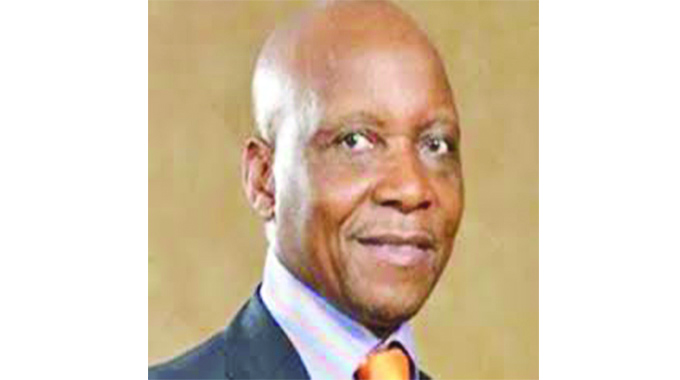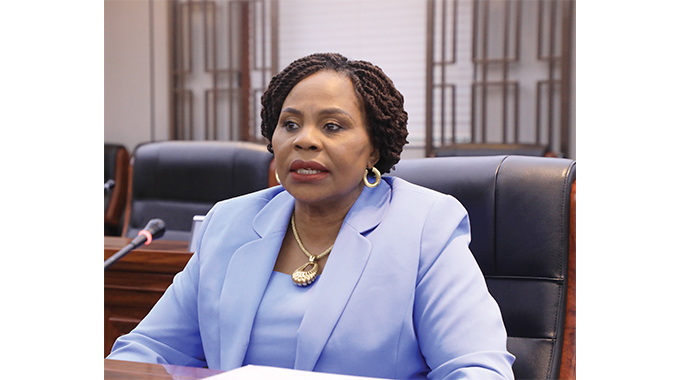‘Ban on ivory trade anti-African’

Leonard Ncube in Hwange
“Allow us to sell our elephants and use the revenue for community development.”
This is a clear message from Chiefs in Matabeleland North while appealing to the Convention on International Trade in Endangered Species of Wild Fauna and Flora (CITES) to allow states to trade in elephants.

Convention on International Trade in Endangered Species of Wild Fauna and Flora (CITES)
Countries that have elephants or Range States are meeting for the inaugural Elephant Conference in Hwange where they seek to come up with one voice ahead of the CITES 19th Conference of Parties (COP 19) in November in Panama.
Speaking on behalf of other chiefs, Chief Dingane-Nelukoba of Dete in Hwange District said communities living next to national parks were suffering because of wild animals which destroy crops, infrastructure and kill people.
Hwange has five Chiefs and all of them share a border with Hwange National Park.
Lupane and Tsholotsho are also affected as they share a border with the giant game park while in Binga communities also bear the brunt of wildlife from Chizalila National Park and Zambezi Valley.
Chief Dingane-Nelukoba said at some point, two people were killed by elephants in a space of one week in his area.
“I am here representing all traditional leaders in our area and I support the idea of culling elephants.

Elephants
We always talk about this and our common position is that elephants should be sold the same way they were sold long back, this is not poaching,” said Chief Dingane-Nelukoba.
He implored Government to engage traditional leaders and communities to get first hand experiences about their co-existence with animals.
There has been debate on whether Range countries should trade in elephants which are classified as endangered because of the declining world population.
Elephant population is rising in African countries especially in Southern Africa and the animals are straying into communities for habitat thereby causing conflict.
They kill people and livestock and destroy crops and infrastructure.
Chief Dingane-Nelukoba who was accompanied by a villager from his area Mr Hanganani Dube (75) who fractured a leg and suffered permanent disability after being attacked by elephants last year, said communities were not benefiting from the animals in their areas.
“They are killing our people and sometime two die in a week.
People get injured and are not compensated, so we should be allowed to sell them and get something.
Governments used to sell ivory and we wonder why this changed and now we suffer because of growing elephant population.
“As a community we are not deriving any benefits from the animals so they should allow us to sell our tusks openly so that the money can be ploughed back to communities through community share,” he said.
The chief said communities should be allowed to attend COP meetings to share their experiences.
He said those that proposed a ban on ivory trade were anti-African.
“These animals are a problem.
As we speak they are camped behind my homestead and we can’t move.
We need a strong resolution to allow hunting of elephants.
A farmer with 500 cattle can sell some of them to take care of the herd, why can’t this apply to elephants?” he quizzed.

He said communities had played their part by reporting illegal hunting activities but were let down by the porous justice system value chain as suspects are quickly released and some skip bail and disappear.
The chief challenged member states to mobilise their citizens in the diaspora to escalate the call for an African position on ivory trade.
The victim of human-wildlife conflict, Mr Dube of Simukululwe Village was attacked around 2PM on May 5 last year while herding cattle.
He said he dragged himself on his buttocks for eight hours until he was rescued by a driver from Hwange Safari Lodge at 10pm when he reached the main road.
“I was herding cattle when suddenly two elephants attacked me near an anthill.
I thank Hwange Safari Lodge and Hwange Rural District Council for helping me after a driver picked me at 10pm.

Hwange Safari Lodge
I am now useless and my children are suffering because I can no longer work.
These people who say we should not sell our elephants are misplaced because they are not seeing what we are going through,” he said.
Delegates concurred that communities should be included in advocating for an African common position.
Safari Association of Zimbabwe president, Dr Emmanuel Fundira said these are the voices that need to be taken to the global stage.
— @ncubeleon








Comments